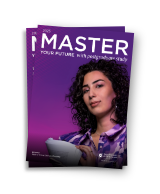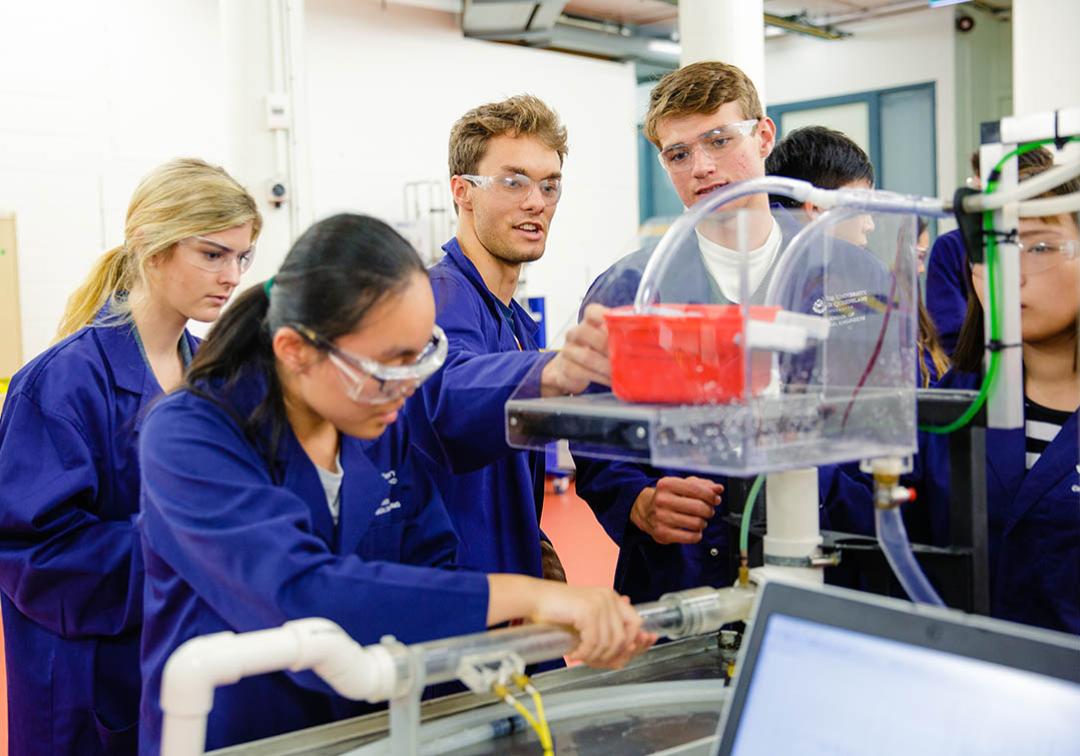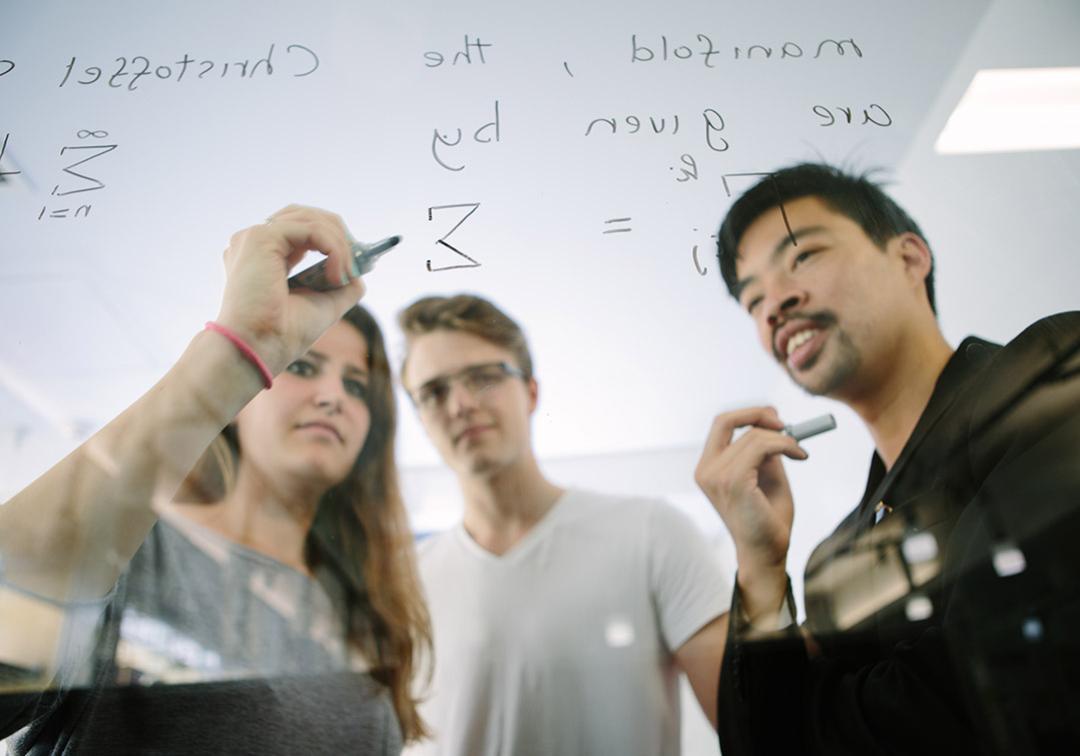
Graduate Certificate in Computer Science
Overview
Change is the only constant in the world of computing. If you're a computing professional looking to upgrade, update or deepen your knowledge of rapidly evolving technologies – this program is for you.
The Graduate Certificate in Computer Science is designed for applicants with a bachelor's degree in computer science or information technology (or a related field). There are other ways to meet admission requirements – see Entry Requirements.
You can focus on one or several areas of interest when choosing from the range of computer science courses, including an advanced research project at masters level.
You will be taught by a mix of internationally renowned lecturers, industry professionals and leading researchers. Our learning spaces are some of the most innovative in the world, allowing students to share ideas, help each other and socialise.
Join a growing industry
- Demand for technology workers will grow by 100,000 between 2018 and 2024 (ACS Australia’s Digital Pulse 2019, Deloitte)
- Computer science research jobs will grow 19% by 2026 (Bureau of Labor Statistics)
Program highlights
- Complete your choice of courses that cover topics from advanced computer science, software engineering, information systems, communication systems, interaction design, research and more. In total, there are nearly 50 courses to choose from.
- Undertake a research project that addresses a specific topic or problem from the broad fields of electrical, computer systems or software engineering.
- Benefit from a program that offers a flexible study plan. Tailor your studies to suit your interests, your industry, or your career goals.
How you'll learn
Your learning experiences are designed to best suit the learning outcomes of the courses you choose.
- Lectures
- Tutorials
- Research experience
- Laboratory work
What you'll study
At UQ, degrees are called 'programs' and subjects are called 'courses'. Here's a sample of the courses you could study in this program:
- Algorithms and Data Structures
- Artificial Intelligence
- Advanced Topics in Security
- Machine Learning
Career possibilities
Postgraduate study can take you anywhere. Here are some of the careers you could be on your way to:
- Business analyst
- Data scientist
- Digital analyst
- Market analyst
- Big data architect
- Data migration specialist
- Social media data strategist
- Information architect
- Database administrator
- IT support officer
Graduate salary
Computing & information systems (postgraduate)
compared.edu.au
Next steps after graduation
The Graduate Certificate in Computer Science equips students with advanced-level knowledge and skills in relevant areas, such as information systems, software engineering, distributed systems, networks, research and security.
Graduates work across a variety of fields and professions.
Some graduates choose to study higher degrees and go on to research positions at universities or other major research organisations. Other graduates work in industry – as analysts, engineers, administrators, developers, project managers and in specialist roles – with an increasing number of graduates employed in banking, finance and insurance.
Events
See all events
7 April
International Baccalaureate Research Skills Program

30 June
Queensland Biology Winter School, Year 11
Stories
See all storiesStories
See all storiesEntry requirements
Entry requirements
To be eligible for entry, you'll need:
- a bachelor's degree (or equivalent) in computer science or software engineering, or
- a bachelor's degree (or equivalent) which includes all of the relevant discipline content (see below), or
- to have completed post-secondary studies and 2 years full-time equivalent relevant work experience (see below). Applications based on post-secondary study and/or work experience will be individually assessed.
You must have a grade point average (GPA) of 4.0 on a 7-point scale in your previous qualification
- a bachelor's degree (or equivalent) in computer science or software engineering, or
- a bachelor's degree (or equivalent) which includes all of the relevant discipline content (see below), or
- to have completed post-secondary studies and 2 years full-time equivalent relevant work experience (see below). Applications based on post-secondary study and/or work experience will be individually assessed.
You must have a grade point average (GPA) of 4.0 on a 7-point scale in your previous qualification
Relevant disciplines for previous qualifications
If your bachelor's degree was not awarded in computer science or software engineering, you must have successfully completed all of the following discipline content in your tertiary studies:
- data structures and algorithms
- at least 2 programming courses
- discrete mathematics or algebra
- at least 3 from the following:
- computer organisation or computer architecture or computer systems
- computer networks or communication networks
- operating systems
- databases or information systems
- probability and statistics
Relevant work experience
Relevant work experience includes professional experience in software development or engineering, cyber security analysis or architecture, data engineering or science, machine learning, computer networks or statistical analysis that involves programming experience and work experience in at least two of the following areas:
- computer organisation or computer architecture or computer systems
- computer networks or communication networks
- operating systems
- databases or information systems
- probability and statistics
This will need to be supported with evidence.
Evidence of relevant work experience should include a letter from your employer (and/or previous employers) clearly stating the following:
- That you work (or worked) within the specified organisation
- The nature of your work, detailing any relevant duties and responsibilities to the entry criteria above
- The length of time you were in your role/s (i.e demonstrating minimum length for entry) and whether this was full-time, part-time, or casual
- Any further bespoke conditions listed by the entry criteria
Letters will typically be expected to be presented on company letterhead and signed by a manager or HR representative. A CV or resume is not a sufficient document on its own, and must be accompanied by a supporting letter as described above.
All applications based on work experience are subject to an individual assessment.
Entry into a program through work experience does not necessarily provide a pathway into further study in a Masters.
Related programs
Depending on your previous qualifications and current goals, you might want to consider
one of these related programs:
English language requirements
IELTS overall 6.5; reading 6; writing 6; speaking 6; listening 6. For other English Language Proficiency Tests and Scores approved for UQ
TOEFL iBT (including Paper Edition) - Overall 87, listening 19, reading 19, writing 21 and speaking 19.
PTE Academic - Overall Score of 64 and 60 in all sub bands.
BE - A minimum overall grade of 4 plus a minimum grade of C in all macro skills.
CES - Overall 176 and 169 in all sub bands.
OET is not accepted.
There are other ways to meet the English language requirements. For some programs, additional conditions apply.
Student visas
International students who are accepted into full-time study in the Graduate Certificate in Computer Science are eligible to apply for an Australian student visa (subclass 500).
There are a number of requirements you must satisfy before a visa is granted, including the Genuine Student (GS) requirement.
Fees and Scholarships
Indicative annual fee
Approximate yearly cost of tuition (8 units). Your fees will vary according to your selected courses and study load. Fees are reviewed each year and may increase.
$4,658
2025
$4,658
2025
Approximate yearly cost of tuition (8 units). Your fees will vary according to your study load. Fees are reviewed each year and may increase.
AUD $26,880
2025
AUD $26,880
2025
Government assistance
Financial aid
As an international student, you might be eligible for financial aid – either from your home country, or from the Australian Government.
HECS-HELP
Domestic places in the Graduate Certificate in Computer Science are Commonwealth supported. This means the cost of your education is shared between you and the Australian Government.
Instead of tuition fees, Commonwealth supported students pay what are called student contribution amounts.
HECS-HELP is an Australian Government loan scheme to assist eligible students with the cost of their student contribution amounts.
Centrelink support
The Australian Government offers a number of income-support payments to eligible Australian university students.
Scholarships
You may be eligible for more than 100 scholarships, including:
How to apply
Applying online
All international applications should be submitted to UQ. If you prefer, you can use an approved UQ agent in your country.
The program code for the Graduate Certificate in Computer Science is 5519.
Find out more about applying for postgraduate coursework study
Applying online
All domestic applications should be submitted to UQ.
The program code for the Graduate Certificate in Computer Science is 5519.
Find out more about applying for postgraduate coursework study
Important dates
The closing date for this program is:
- To commence study in semester 2 - May 31 of the year of commencement.
- To commence study in semester 1 - November 30 of the previous year.
To learn more about UQ dates, including semester start dates, view the Academic Calendar.
Important dates
The closing date for this program is:
- To commence study in Semester 1 - January 31 of the year of commencement.
- To commence study in Semester 2 - June 30 of the year of commencement.
To learn more about UQ dates, including semester start dates, view the Academic Calendar.
Aboriginal and Torres Strait Islander applicants
For support with applying – or if you have any questions about university life – get in touch with our Aboriginal and Torres Strait Islander Studies Unit.
Explore other programs
Express yourself. And your interest.
They say choosing a degree is hard, which is why we've made it easy. Register your interest and we'll send you everything you need to know about applying to UQ.





